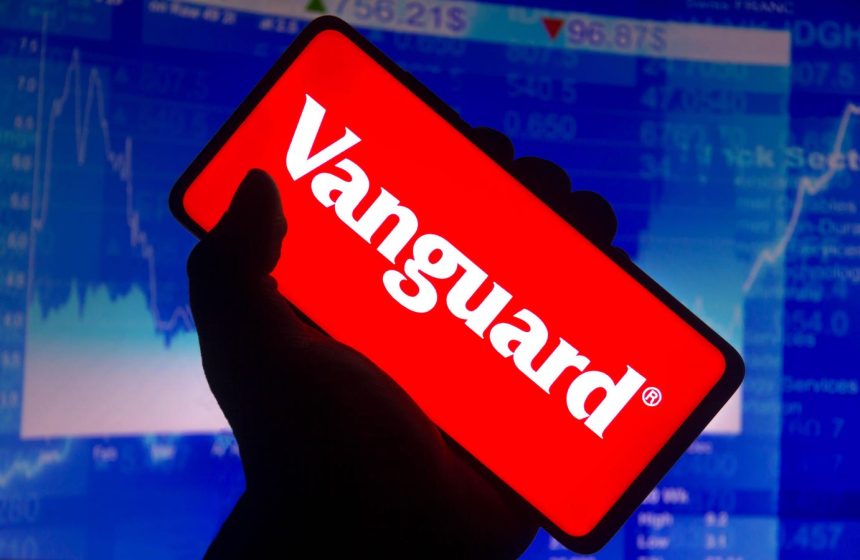Vanguard has made its name for close to 50 years as a low-cost asset manager that revolutionized investing by cutting fees to the bone, so some of its customers may now be surprised to see new charges start adding up this summer.
The firm with $8.6 trillion in assets notified customers this week that starting on July 1, it will charge them a $25 transaction fee to trade Vanguard ETFs and mutual funds through a broker over the phone, and will also begin imposing a $100 processing fee to close an account or transfer assets to another firm. It was already charging $25 per transaction to buy or sell funds not managed by Vanguard over the phone.
“The people paying that fee are going to be retirees who have probably been lifelong Vanguard customers and aren’t good with the internet,” says Jeff DeMaso, editor and founder of The Independent Vanguard Adviser. “I understand there’s an expense to have someone field those calls, but you’re still dinging people who have been your longtime customers.”
A Vanguard spokesperson said “the vast majority of mutual funds and ETFs trades placed today are done online,” where transactions will remain commission-free, and added that it has invested in revamping the digital experience on its website and app in recent years. “Vanguard is committed to helping clients navigate toward secure, simpler, and more seamless digital pathways, and constantly evaluates our brokerage services and products, inclusive of the commissions and fee schedule,” the spokesperson said in a statement. “Through these modernization efforts across web and mobile, client satisfaction has steadily improved year over year, now reaching all-time highs.”
The new fees put Vanguard, which has long distinguished itself as the lowest cost provider across a host of financial services, right in step with its competition. The fine print on pricing for Charles Schwab and Morgan Stanley’s
Morgan Stanley
Vanguard, based in Malvern, Pennsylvania and founded by the late Jack Bogle in 1975, has always branded itself as different from those peers, owned by its 50 million clients who invest in its funds and share in the profits via lower costs. Its weighted average fees of 0.08% are still the industry standard collectively—BlackRock’s
BlackRock
Vanguard’s average fees suggest the firm rakes in around $7 billion on its $8.6 trillion in assets annually. The extra customer charges aren’t likely to materially affect the privately-owned company’s top line. Vanguard’s wealthiest customers will also be exempt from the charge. Investors with at least $1 million in qualifying Vanguard assets—contributing more in management fees—will be allowed to continue to trade commission-free with a live broker, and investors with at least $5 million won’t have to pay the account closure fee.
For everyone else, Vanguard is evidently deciding the burden of getting special attention from brokers is no longer worth it, a continuation of other moves it’s made in recent years to streamline operations. Vanguard charges a $25 annual service fee on brokerage account holders that haven’t signed up for electronic delivery of statements and other materials rather than getting them through snail mail, and investors who haven’t converted legacy mutual fund accounts into brokerage accounts are tapped for $25 annually for each mutual fund they own.
“It does seem that there’s a move within Vanguard to try and use fees to nudge people in their behavior, which doesn’t feel very Vanguard-like,” says DeMaso.
Vanguard’s announced changes come a month after Fidelity received blowback for notifying clients that it will begin charging a $100 commission effective June 3 each time they buy ETFs issued by one of nine smaller independent ETF managers. These ETF managers don’t pay to participate in an existing maintenance agreement with Fidelity, Bloomberg reported, and account for a small fraction of the funds available on the platform, though Fidelity reserved the right to update the list before the fee is implemented.
“Imagine there’s some grandma who’s dollar-cost averaging into our funds $100 a month and she’s getting charged $100 commissions on each trade,” says Meb Faber, chief investment officer of Cambria Investment Management who has been publicly critical of the policy, though his firm will not be affected. “The crazy part of this decision is that it’s not going to make any money for them. If you do the math, it’s like 0.0001% of their revenue. Our belief is they did it to try to force ETF issuers into paying them a revenue share.”
Read the full article here
















